Monologue: Cheng Pei-pei in "Lilting"
 Monday, November 10, 2014 at 10:11PM
Monday, November 10, 2014 at 10:11PM Andrew here.
Last week’s BIFA nominations saw a mix of expected names and surprises, but the inclusion I was most excited for was the citation of the quiet, lovely performance of Cheng Pei-Pei in Lilting. Lilting premiered in January at the Sundance Film Festival to good reviews but it’s the type of smaller film, one in a dozen each year, that seems destined to be forgotten by the time the year draws to a close. It’s a shame, because even when its story falters slightly Lilting remains a thoughtful, and affecting, piece.
Like a profound monologue Pei-Pei has towards the end of the film. Up to this point in Lilting, Hong Khaou (writer and director) has elongated the crisis of when Junn will find out that her dead son’s friend, Richard, who keeps visiting her at her convalescent home is actually his ex-lover. Though it threatens to lag in the middle, Lilting begins and ends with aplomb. The audience has been wondering just why Richard doesn’t just tell Junn the truth. And, in his final big scene as he explains to Junn, Whishaw is fantastic. And like mother oftentimes do, Junn reveals she already knew Kai was gay and launches into a monologue of her own.

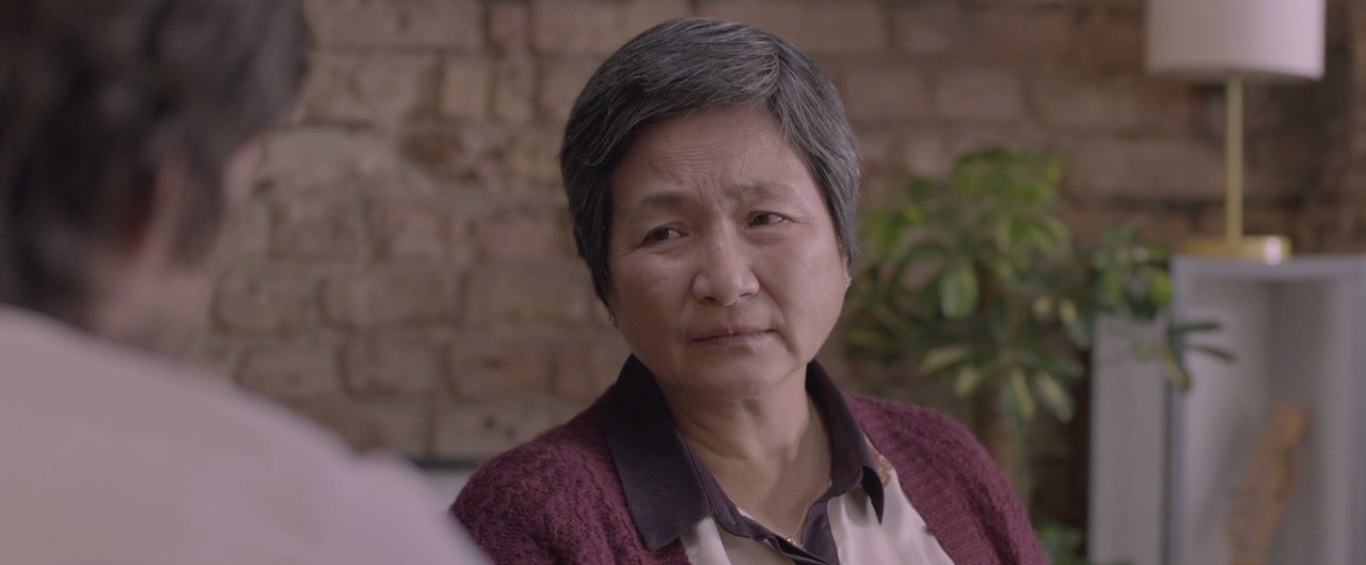
“It’s pathetic for a mother to fight for her own son’s attention. I felt so jealous of you…”
It's not so much a justification for Junn's passive aggression towards Junn, so far but instead an essential glimpse into Junn – a lovely clarification of this heretofore inscrutable woman.
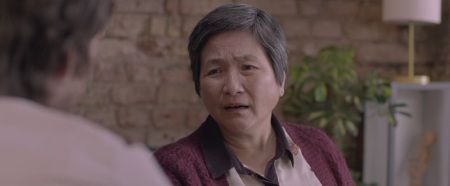
I didn’t strangle Kai with guilt. It was always there. You will feel it as your parents age and so will your children when you age.
It’s a wonder the monologue manages to be such a good moment for Pei-Pei because the camera leaves Junn and as she speaks we enter a sot of a dreamscape where the camera circles a room with with different subsets of our five main characters dancing. We begin with Richard, alone...
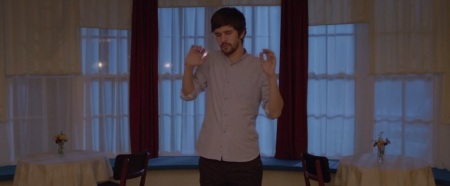
These memories are all I have, I need to keep them vivid, or they’ll fade like the face of my husband.
The camera circling the room moving from Richard alone to various characters in an embrace is simple, but gorgeous and probably one of the key scenes that gave Urszula Pontikos his Cinematography Award at the Sundance Film Festival.

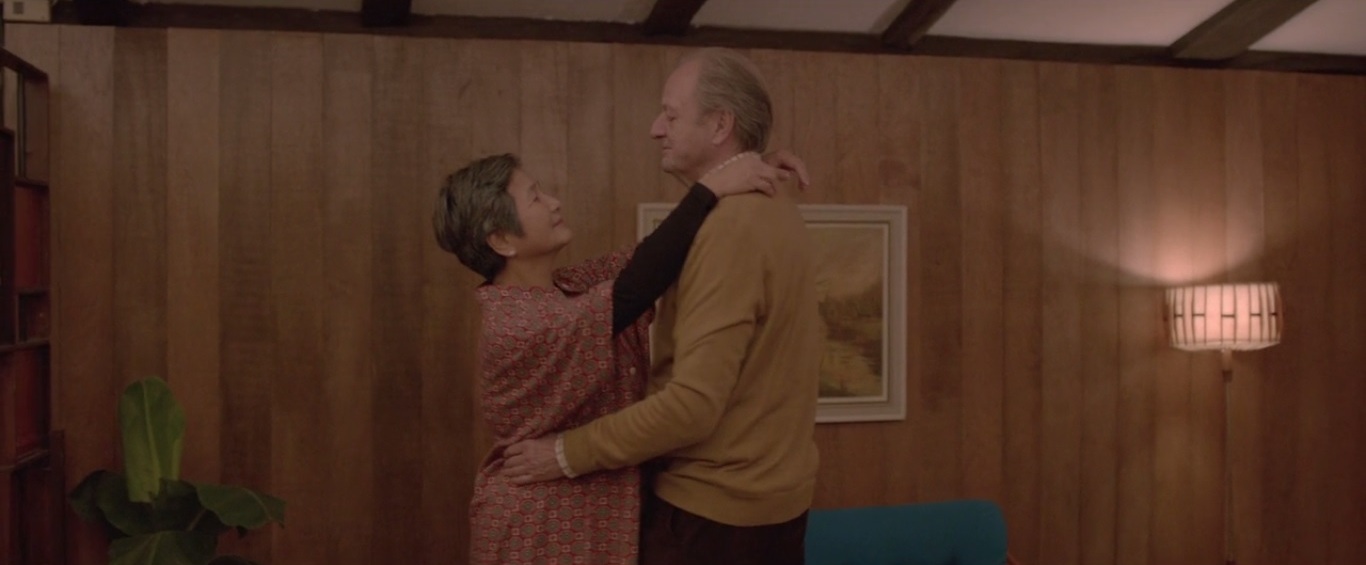
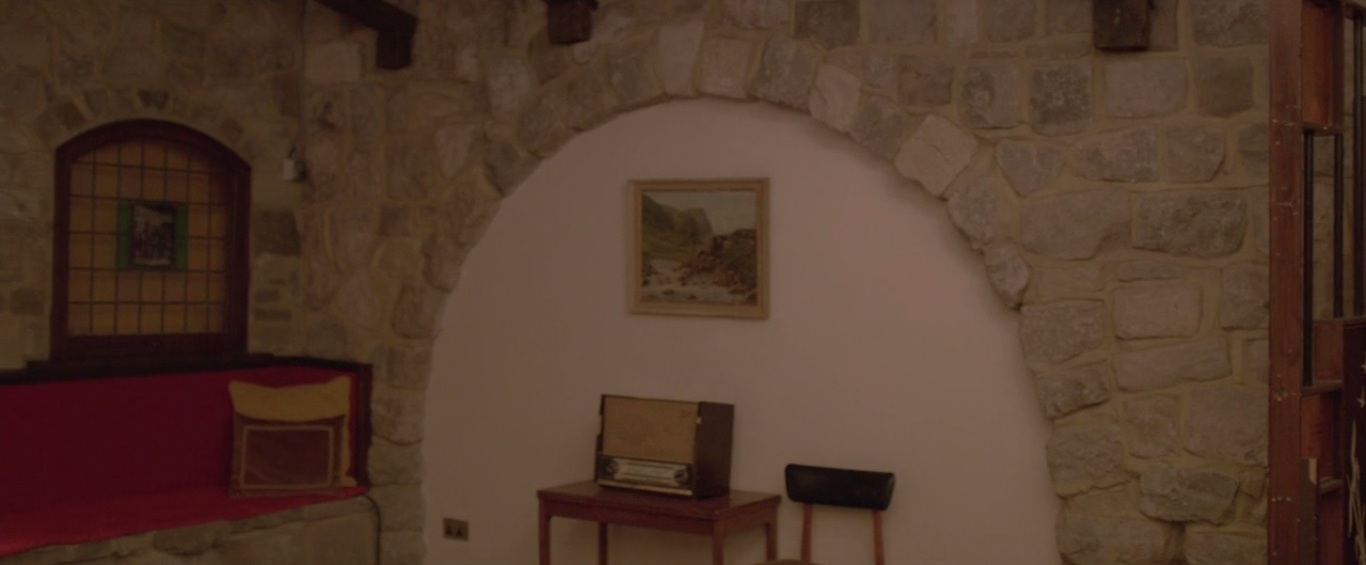
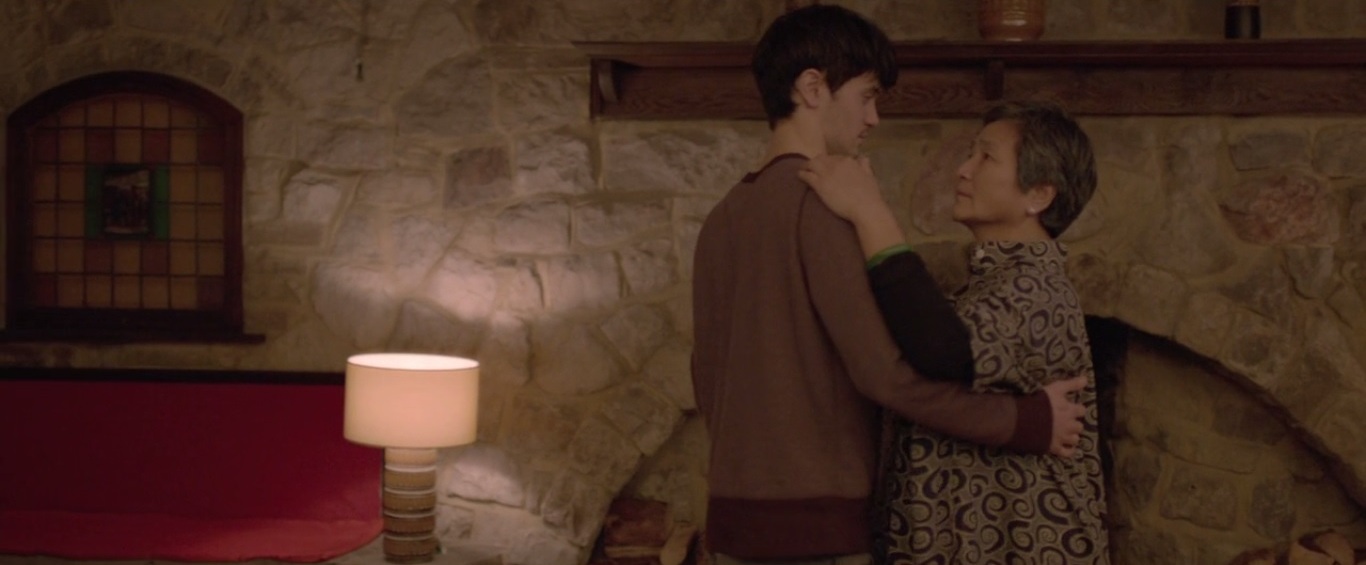
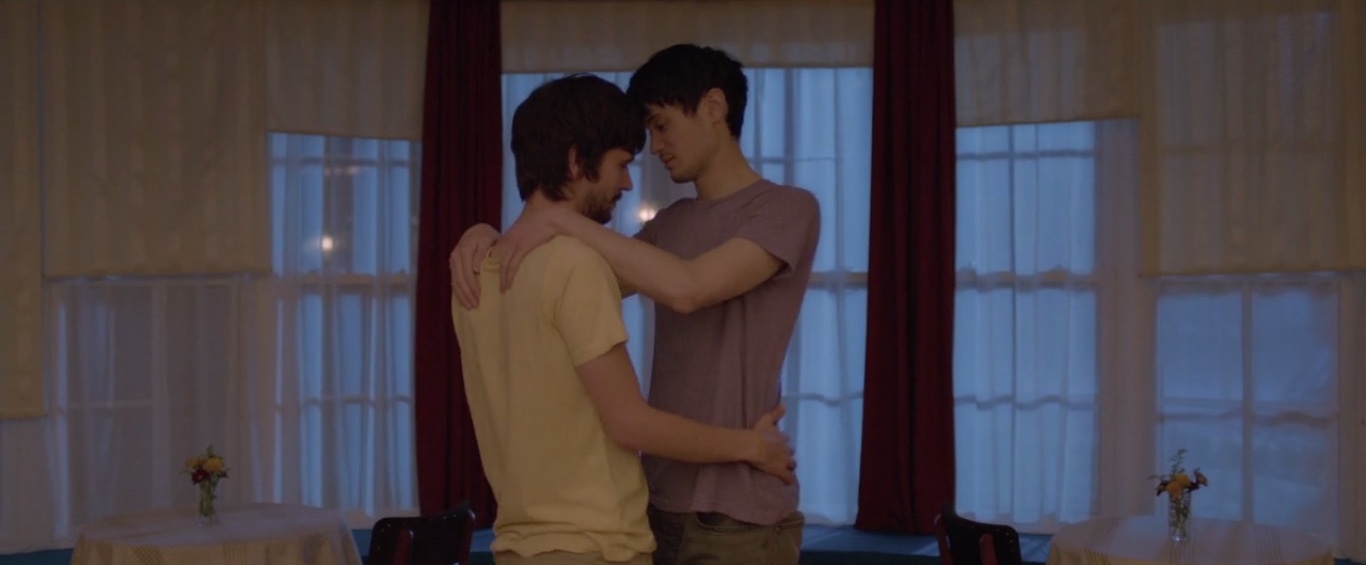
Like any mother I wanted Kai to be with me. I want to dwell on these memories and cry over them because they comfort me. Let me tell you something. Through plenty of crying, I’ve learnt to be content, that I won’t always be happy. Secure in my happiness, hopeful that I will be able to cope.
In one of the key moments of the film, Richard finds a record for Junn that her meant to bring for her before she died – a Mandarin recording of the Luis Demetrio and Pablo Beltran Ruiz song “¿Quién será?” (popularised by Dean Martin’s English version “Sway”). It’s not hard to imagine that as Junn speaks the dancing images across the screen are a manifestation of our characters dancing to “Sway”. It’s almost as if you can hear the haunting refrain of the song’s bridge, “Sway with me, stay with me” as we watch the various pairs together holding on for a last time in this dream world. The refrain becomes sad as we remember that the memory of the deceased Kai is suffused in every part of Richard and Junn's lives.
Every day on Christmas day I get lonely. An incredible feeling of solitude. On this day, everything has stood still even the trees have stopped rustling, but I’m still moving. I want to move but I have nothing to move to, and nowhere to go.
I love how the monologue makes note of the dichotomy between stillness/stasis and movement/development is profound only reaffirming the absence of the “Sway” song in Junn’s life for so long.
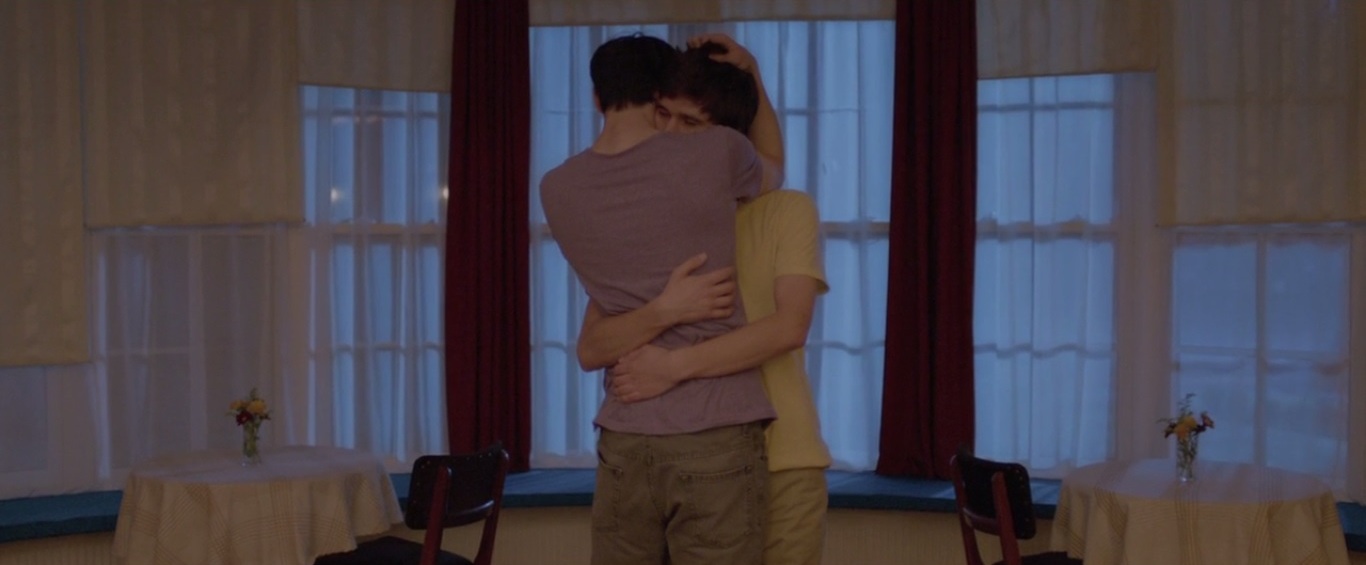
The scars beneath my skin suddenly surface and I get scared. Scared of being alone. But, you know, tomorrow is another day. I will carry on with my life.
Text alone, the monologue may seem almost basic, but in movement it's very profound. The most magnificent thing about the use of the monologue here is that unlike Junn’s other lines to Richard, this beautiful closing monologue is left brilliantly un-translated by interpreter Vann – instead just relayed to the audience with the use of subtitles. It's as if Junn's words are so powerful for Richard they can transcend the language barrier.
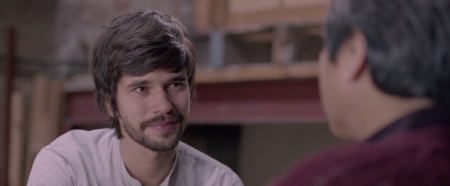
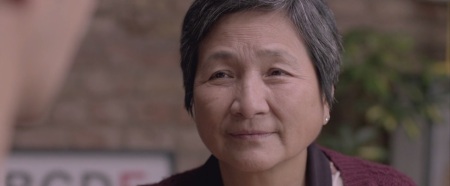
It’s a conceit of the director, but when she finishes speaking and see Richard’s face we understand that he has understood her. And when we zero back in on Junn’s face we let out a sigh that the entire film has been building up to – closure has come. It’s this monologue that launches us into the film’s end with Junn’s final “memory” of her, a perfect recreation of what that last moment ought to have been. Pei-Pei’s performance is unfussy and quiet but it’s robust and effective in its way. It’s nice to see her remembered by the BIFA.
(I wish Whishaw was nominated alongside her, though.)
 Cheng Pei-pei,
Cheng Pei-pei,  Lilting,
Lilting,  monologue
monologue 


Reader Comments (1)
Thank you for writing about this such delicate film. I agree: Whishaw is astonishing and deserved a nomination but I am so glad they rewarded Cheng Pei-Pei who is fantastic as the grieving mom...one of my fav female performances this year!